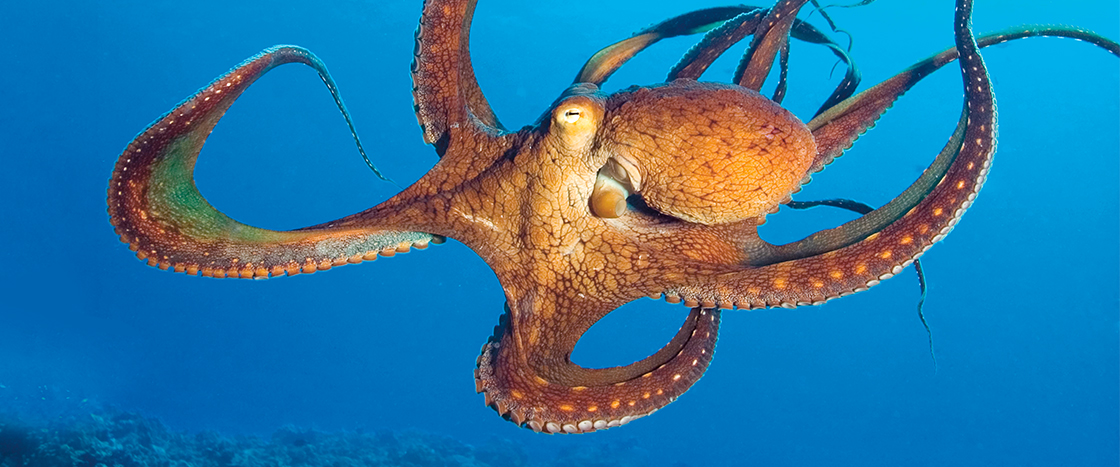Forty years ago, Jennifer Mather was diving off the coast of Bermuda in the Atlantic Ocean. She spotted a common octopus, a soccer ball-sized octopus found in oceans around the world. Mather watched it slink around the seafloor, using the suckers on its eight long arms to gather clams and snails. The octopus dragged the morsels of food to its den, cracked open the shells with its arms, and began eating.
When the octopus was finished, Mather watched it do something surprising. It scuttled out of the den and used one of its arms to pick up a rock. It brought the rock to its den, then left to grab another, then another. It lined the rocks up in a row so they formed a wall over the den opening. “That was my ‘aha’ moment,” remembers Mather. “Octopuses are smart!”
Today, Mather studies animal behavior at the University of Lethbridge in Canada. She designs experiments to investigate how octopuses think. Scientists consider octopuses some of the most intelligent invertebrates. Scientists like Mather want to better understand the animals’ remarkable abilities—and how those abilities help them survive.
Forty years ago, Jennifer Mather was diving off the coast of Bermuda. It’s an island in the Atlantic Ocean. She spotted a soccer ball-sized common octopus. Mather watched the animal slink around the seafloor. The octopus has suckers on its eight long arms. It used them to gather clams and snails. It dragged the food to its den. There, the octopus cracked open the shells and began eating.
Then the octopus did something surprising. It crawled out of its den. It picked up a rock and brought it back. Then it grabbed another and another. It lined the rocks up. They formed a wall over the den opening. “That was my ‘aha’ moment,” remembers Mather. “Octopuses are smart!”
Today, Mather works at the University of Lethbridge in Canada. She studies animal behavior. Mather designs experiments to investigate how octopuses think. They are thought to be some of the smartest invertebrates. Scientists like Mather want to learn about the animals’ amazing abilities.

